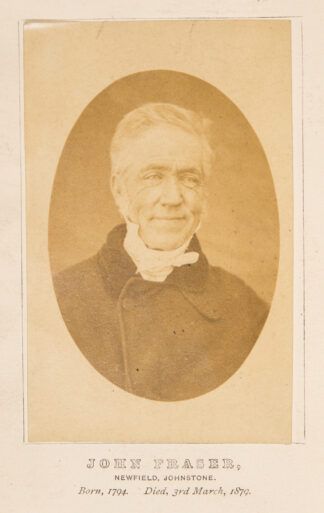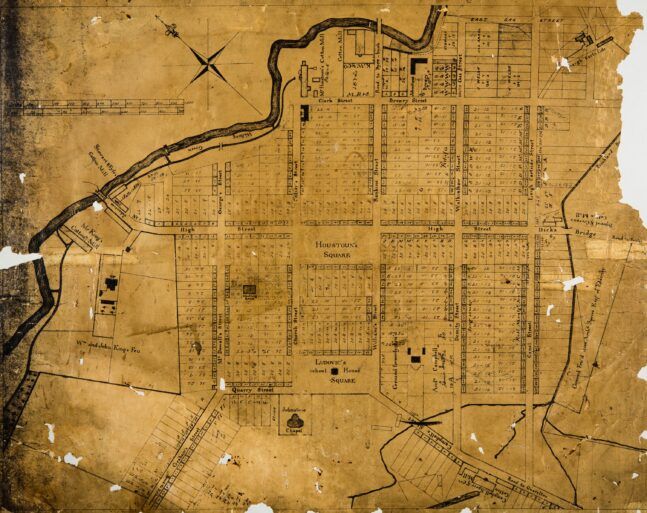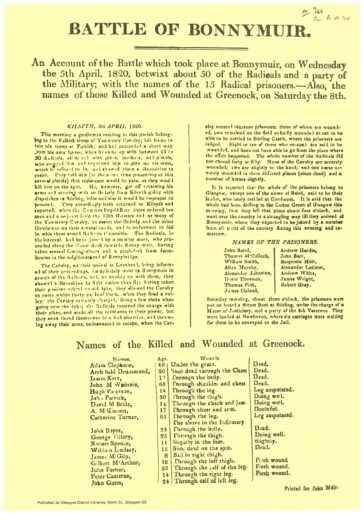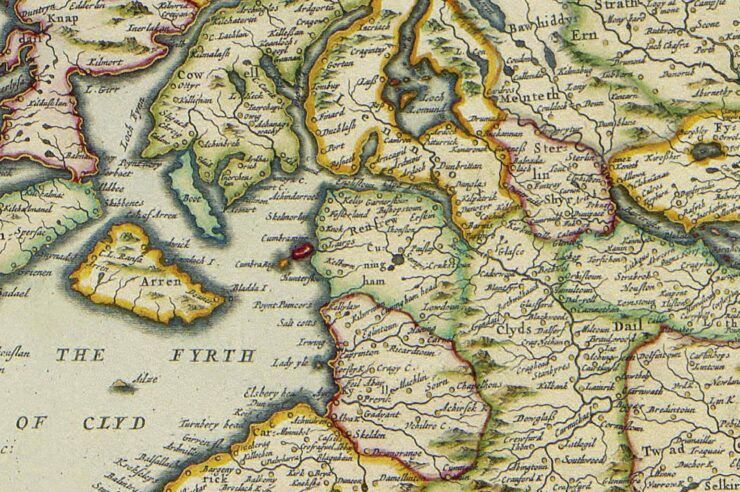Renaissance man and radical, John Fraser, who lived from 1794-1879, was famed for his involvement in the Radical Rising of 1820.
Background
During the unrest John, along with a number of other ‘radicals’, was tried for treason, following a week of strikes and protests throughout Scotland.
Following his release from prison, John returned to teaching for the next 16 years. His curriculum was widely admired throughout the West of Scotland.
He later moved his family to Edinburgh, where, in 1839, he invested his life savings in launching the radical Chartist newspaper, ‘The True Scotsman.’ The paper went on to become the best-selling newspaper in the country at the time.
He also had a long career as a weaver, educator, writer, poet, musician, public speaker and was a leading light in the development of the Johnstone Cooperative Movement.
For his musical talents John enjoyed great success touring the UK and later the US and Canada with his family performing some of the work of Burns that he’d adapted to music, where the performances secured rave reviews.
John Fraser’s impact
The Renfrewshire radical has now been honoured with a plaque which has been installed at Johnstone Town Hall in recognition of his importance to the town.
Tannahill Makar, Shaun Moore, has been inspired by Renfrewshire’s radicals in his own poetry and writings.
He said: “I believe it’s right for people to know about figures like John Fraser, as they strove to build a fairer society for us. They are important figures who dedicated their lives to improving the lives of others, which was a kind of heroism. That’s worth not only commemorating but being thankful for too.
“As an artist, a writer, I believe that creativity and rebellion have always gone hand in hand. This is sometimes because our artists instinctively seek new ways of seeing or doing things, but more often because historically their role has been to advocate change or champion the voiceless and invisible people.
“Learning of the real sacrifices made by people like John Fraser has given me courage to stick my neck out, as a writer. Learning of the Weaver poets before him and of the songwriters, playwrights, and visual artists who came after, gives me a sense of duty to carry on the tradition of challenging.”



